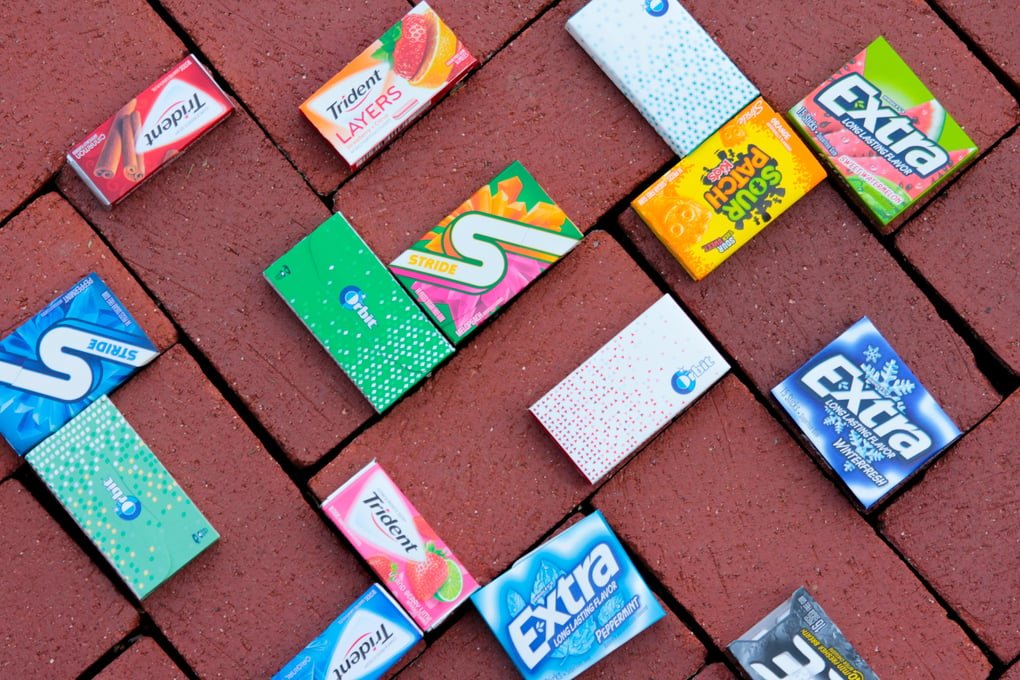Gum expires after about six months to two years, depending on various factors. The answer to ‘when does gum expire’ is not as straightforward as it may seem. Factors like storage conditions, type of gum, and packaging can all play a role in determining its shelf life. In this article, we will delve deeper into the expiry of gum and provide you with essential information to ensure you always enjoy your favorite chewy treat at its best. Let’s uncover the mystery behind when gum expires and how to best preserve its freshness.
When Does Gum Expire: Your Complete Guide
Welcome to our ultimate guide on when gum expires! Have you ever wondered if that pack of gum hiding in your backpack or stashed in your drawer is still good to chew? In this article, we will answer all your questions about the expiration of gum. So, let’s dive in and explore everything you need to know about when gum expires.
What Is Gum’s Shelf Life?
Gum is a popular treat enjoyed by people of all ages. Whether you prefer minty freshness, fruity flavors, or classic bubble gum, it’s essential to know how long gum lasts. The good news is that gum typically does not have an expiration date like other food items. Most commercial gums have a shelf life of around six months to two years.
Factors That Affect Gum’s Expiration
Several factors can influence how long gum remains fresh and flavorful. One of the primary factors is the type of gum you have. Sugarless gums tend to have a longer shelf life compared to sugar-containing varieties. Additionally, storage conditions play a crucial role in preserving the quality of gum. Keeping gum away from heat, light, and humidity can help extend its lifespan.
Visual Signs of Expired Gum
While gum does not technically expire, it can lose its freshness over time. One way to determine if your gum is past its prime is by examining its appearance. If the gum has changed color, become brittle, or developed a powdery coating, it may be time to toss it. Trust your instincts and use your best judgment when deciding whether to chew old gum.
Can Expired Gum Make You Sick?
One common concern among gum chewers is whether expired gum can make them sick. The good news is that chewing expired gum is unlikely to cause any serious health issues. While the texture and flavor may deteriorate over time, expired gum is generally safe to consume. However, it’s essential to practice good hygiene and dispose of gum that appears to be contaminated or extremely old.
Best Practices for Storing Gum
To maximize the shelf life of your gum and ensure it stays fresh for as long as possible, follow these storage tips:
- Avoid exposing gum to direct sunlight or high temperatures.
- Store gum in a cool, dry place away from moisture.
- Seal gum packs tightly after opening to prevent air exposure.
- Check gum periodically for any signs of spoilage.
Reviving Old Gum
If you find a pack of gum that has lost some of its freshness, don’t worry – you can try to revive it! One popular method for revitalizing old gum is to place it in the refrigerator for a few hours. The cool temperature can help restore the gum’s texture and flavor. Additionally, consider adding a piece of fresh gum to the pack to infuse it with a new burst of flavor.
DIY Gum Flavoring
For those who enjoy experimenting in the kitchen, you can try adding your own flavorings to old gum. Whether it’s a drop of mint extract, a sprinkle of cinnamon, or a dash of citrus zest, get creative and give your gum a personalized twist. Just remember not to add anything that may compromise the safety of the gum or your health.
In Conclusion
In conclusion, while gum does not technically expire, it can lose its freshness and taste over time. By understanding the factors that affect gum’s shelf life and following proper storage practices, you can enjoy your favorite gum flavors for longer. Remember to trust your senses and dispose of gum that has gone bad to ensure a pleasant chewing experience. So, next time you reach for a piece of gum, keep in mind the tips shared in this guide and chew away without worry!
We hope this article has answered all your questions about when gum expires and provided you with valuable insights on keeping your gum fresh. Happy chewing!
Trying Gum That Expired in 2016
Frequently Asked Questions
How can I tell if my gum has expired?
To check if your gum has expired, look for the expiration date on the packaging. If the date has passed, or if the gum shows signs of discoloration, hardening, or an unusual smell, it is likely expired.
What happens if I chew expired gum?
If you chew expired gum, it may not taste as fresh, and the texture may become harder or crumbly. In some cases, expired gum can lose its flavor or even develop an unpleasant taste. It’s best to discard expired gum to avoid any potential issues.
Can expired gum make you sick?
While chewing a small amount of expired gum is unlikely to make you sick, it may not provide the intended freshness or taste due to changes in its composition over time. It’s recommended to avoid consuming expired gum to ensure a better chewing experience.
How should I store gum to prolong its shelf life?
To extend the shelf life of gum, store it in a cool, dry place away from direct sunlight and heat sources. Sealing the gum pack tightly after each use can also help maintain its freshness and prevent it from expiring prematurely.
Final Thoughts
Gum expires due to changes in texture and flavor caused by exposure to air and moisture. It is generally safe to chew expired gum, but the quality may be compromised. Flavor loss and hardening are common signs that gum has expired. Always check the expiration date to ensure freshness and taste. Remember, when does gum expire is crucial for optimal chewing experience.




